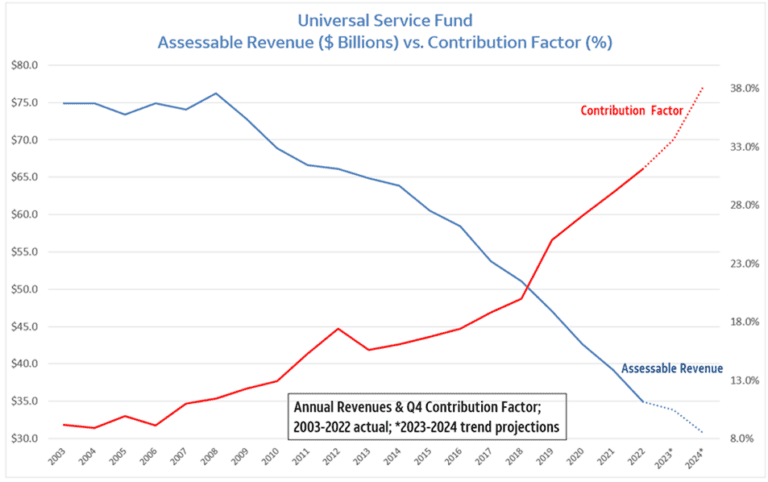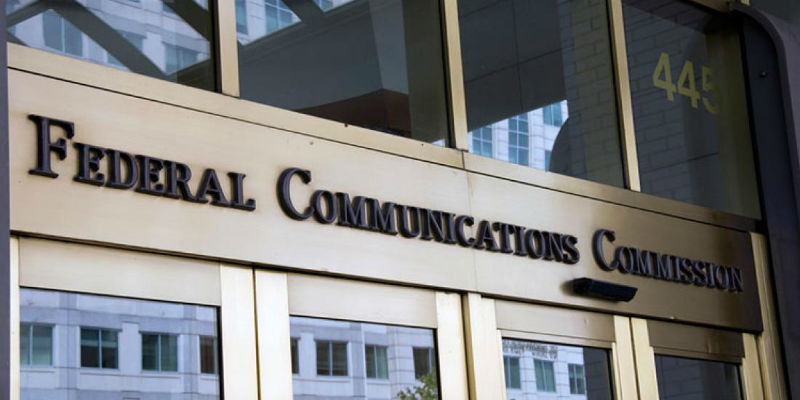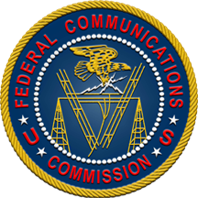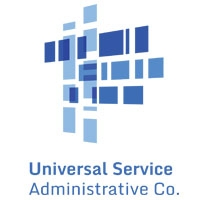FCC Pushes 911 Into the Digital Era: What OSPs and PSAPs Need to Know
USF Traffic Study vs Safe Harbor Spending. Let's Do The Math.
The fourth quarter's contribution factor has been announced by the FCC to be the highest ever at 34.5 percent. How exactly does that affect your Universal Service Fund (USF) fees for this quarter? This post will dive into case examples to demonstrate the potential cost savings achievable through traffic studies.
Topics: Telecom Data Analytics, USF, Regulatory, FCC
Understanding the Highest Ever Universal Service Fund Contribution Factor (34.5%)
Last week, the FCC announced the proposed Universal Service Fund Contribution Factor for the fourth quarter of 2023. At a staggering 0.345, or 34.5 percent, this figure marks an unprecedented high in the history of this vital telecommunications fund.
The Universal Service Fund (USF) has become a topic of concern in the telecommunications industry, and rightly so. This crucial fund plays a pivotal role in ensuring that telecommunications services are accessible and affordable for all Americans. To comprehend why this factor has been on the rise, let's delve into the various programs it supports and why it's in dire need of reform.
Topics: Telecom Data Analytics, USF, Regulatory, FCC
There's Still Time to Lower USF Fees Before Your 499A Filings
Time after time, carriers contact us about wanting to do something to lower their skyrocketing USF Fees.
Some carriers may feel like they are at the mercy of an endless cycle of a volatile contribution factor that has risen drastically in the past decade -from 15.5 percent in the first quarter of 2011 to 31.8 percent in 2021.
A solution that carriers overlook is their ability to reduce their Federal USF tax by means of a Traffic Study.
By using the Safe Harbor Rate, you can be spending twice as much as you should on USF Fees when filing your 499s. With the deadline for carriers to submit their 499As around the corner, the time to complete a Traffic Study is now.
Here's a direct quote from a recent USAC Webinar;
The best (easiest) time to switch from using the Safe Harbor percentage to traffic studies is with the 1st quarter filing of the year ... Keeping methodology consistent for all quarters simplifies annual revenue reporting on the applicable Form 499-A due the following April.
These spikes in USF fees can be managed by ditching the Safe Harbor rate when you file your 499s, and instead performing a traffic study.
Topics: USF, Regulatory, Cost Savings, FCC
Changes to Performance Testing Sample Size Approved for 1Q and 2Q 2022
Earlier this month, the NTCA- otherwise known as the Rural Broadband Commission, filed a petition for waiver requesting the Wireline Competition Bureau (Bureau) to extend the aid provided by the previous December 2020 Waiver Order. The Rural Broadband Commission explained in the petition that broadband providers continue to face challenges such as supply chain issues as a direct result of the Covid-19 pandemic.
The main requests of the NCTA were as follows;
- The Commission should continue to allow A-CAM/RBE/Alaska Plan carriers to only pre-test 70% of the USAC-selected sampled locations for the first two quarters of 2022
- Extend the “simple” waiver request for A-CAM/RBE/Alaska Plan carriers
- Extend the pre-testing period for A-CAM/RBE/Alaska Plan carriers
Topics: Broadband, FCC, connect america fund
"A person doesn’t know how much they have to be thankful for - until they have to pay taxes on it."
Whether you’re a large ILEC, or a small rural voice provider, with every 499 submitted to the FCC carriers and their customers contribute a percentage of their international or interstate calls to the USF. While the USF has proven it’s importance with the introduction of rural broadband support and other funding grants, there’s an ongoing dilemma in regards to how carriers contribute to the USF.
Much of this dilemma stems from the FCC’s Contribution Factor and Safe Harbor Rate that many providers default to using to file their 499s.
Topics: USF, Regulatory, FCC
How to Ensure Success in the Next Phase of Performance Measures Testing
Complying with the USAC’s requirements can be stressful. However, being non-compliant during the pre-testing phase isn’t the end of the world. In fact - it’s part of the process in most providers' deployment journeys.
As we jump into the fourth quarter of ACAM-I pretesting and prepare for the upcoming 2022 official testing, it’s important that providers determine what tactics they used to be successful this past year.
Topics: Telecom Data Analytics, Regulatory, Broadband, FCC, stamper box, connect america fund
It's no question that the Universal Service Fund (USF) has proven it's value in creating an all-inclusive broadband network. However, the rising costs of USF fees have caused many industry professionals to call for a change in how service providers contribute to the fund.
In our regulatory work, we're often shocked at how many providers don’t know that there are ways to cut their overall USF contribution to be a fraction of what it is now.
To give a brief overview of the USF, it’s split between four separate funds;
- Low-income Lifeline fund
- Rural Healthcare fund (RHC)
- E-Rate: For Schools and Libraries
- High-cost fund
Topics: USF, Regulatory, Cost Savings, FCC
A few months ago the FCC released order DA 18-710 specifying the network performance testing and reporting required for ISPs who receive support from the Connect America Fund (CAF). The order is nearly 40 pages, but in this post we will summarize the requirements and provide some options for how ISPs can comply.
Who Must Comply?
Recipients of CAF high-cost universal service support, including:
Topics: Regulatory, FCC, stamper box, connect america fund
In February 2018, an up and coming VoIP service provider contacted us about performing a USF traffic analysis before their next quarterly filing. With the 'Safe Harbor' rate set at 64.9% and the quarterly contribution factor increasing to an all time high of 19.5%, D3 Unified Communications decided it was time to explore the option of performing a traffic study.
Within 1 week, we had a data sample from D3 and provided a free high level estimate of what their actual PIU would be if we completed the traffic study. Our quick analysis on the data estimated that their actual PIU would be less than half of the 'Safe Harbor' rate of 64.9%. The decision to perform the traffic study became an easy one to make as the savings were very evident.
Topics: USF, Regulatory, Case Study, FCC
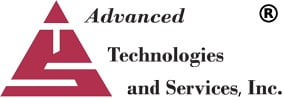

-3.png)
